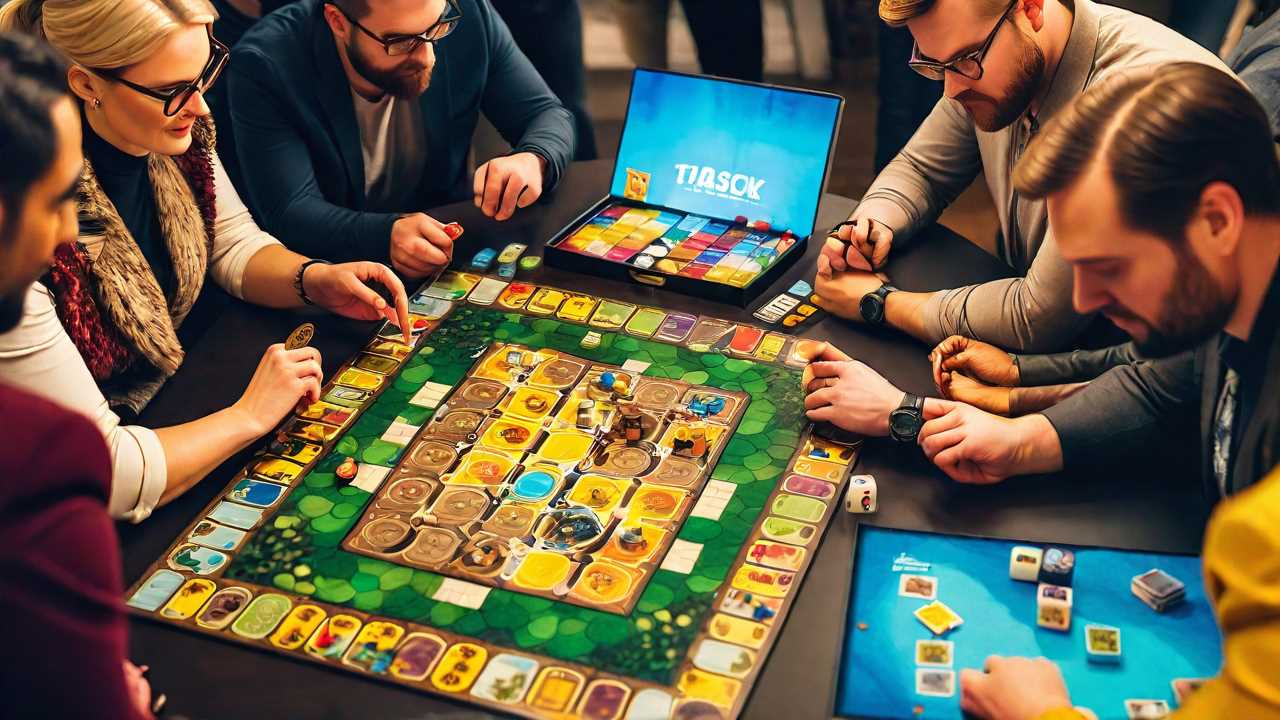Entertainment
How to Create and Sell Custom Board Games?

When venturing into the world of custom board games, envision a space where your creativity knows no limits. Imagine the excitement of designing intricate gameplay mechanics and crafting visually engaging components that draw players into a whole new domain of fun and challenge. Picture the satisfaction of seeing your creation come to life on tabletops around the globe, sparking joy and camaraderie among friends and families. But remember, the path to success in this competitive industry is not without its twists and turns. So, buckle up and prepare to navigate the intricate maze of game development and marketing strategies to carve out your unique space in the board game market.
Game Concept Development
Crafting a unique and engaging game concept is the cornerstone of creating a successful custom board game. To begin, think about what makes you excited and passionate. Your enthusiasm will shine through in the game, drawing others in.
Consider the theme – whether it’s fantasy, mystery, or history, pick something that resonates with you and your target audience.
Next, ponder the mechanics. Will it be a strategy game where players compete for resources, or a cooperative game where everyone works together to achieve a goal? The mechanics should align with the theme to create a cohesive experience.
Don’t forget about player interaction. Board games are social experiences, so think about how players will engage with each other. Will they trade resources, form alliances, or engage in friendly competition?
Lastly, make sure your game concept is clear and easy to understand. A concise and engaging concept will attract players and keep them coming back for more.
Prototype Creation
To bring your game concept to life and test its mechanics, start building a prototype using basic materials and components readily available. Utilize cardboard, paper, markers, and other household items to construct a rough version of your game board, cards, tokens, and any other necessary elements. This prototype doesn’t need to be perfect; it’s about capturing the essence of your game idea.
Once you have your basic prototype assembled, gather a group of friends or family who enjoy board games. Playtest your game with them and observe how they interact with the mechanics and rules. Take note of any confusion, excitement, or moments of engagement during gameplay. This feedback is invaluable for refining your game and making it more enjoyable for players.
Don’t be afraid to iterate on your prototype based on feedback received. Make adjustments to rules, components, or design elements to improve the overall gameplay experience. Remember, the goal of prototyping is to uncover what works and what doesn’t, helping you shape your game into something truly special.
Production and Manufacturing
Once your prototype is polished and playtested, it’s time to delve into the intricate world of production and manufacturing for your custom board game. This stage is pivotal in transforming your creative vision into a tangible product that can be shared and enjoyed by others.
Here are some essential steps to ponder:
- Find a Reliable Manufacturer: Research and reach out to manufacturing companies that specialize in board game production. Make sure they can meet your quality standards and production requirements.
- Select Materials: Choose high-quality materials for your game components that align with your budget and vision. Take into account the durability and aesthetics of each element.
- Finalize Designs and Specifications: Provide detailed instructions and artwork files to the manufacturer to guarantee accurate reproduction of your game components.
- Request Prototypes: Before full production, request samples or prototypes to assess quality, colors, and overall appearance. Make any necessary adjustments before mass production begins.
Marketing and Sales Strategy
Developing a strong marketing and sales strategy is essential for successfully promoting and distributing your custom board game to your target audience. To create a buzz around your game, start by defining your unique selling points. Highlight what sets your game apart from others and why it’s a must-have for board game enthusiasts.
Utilize social media platforms to engage with your audience, sharing behind-the-scenes peeks, gameplay teasers, and interactive content to build excitement.
Consider hosting game nights or attending conventions to showcase your product in person. Collaborate with influencers in the board game community to broaden your reach and gain credibility.
Offering limited-edition versions or exclusive add-ons can entice collectors and enthusiasts to make a purchase.
When it comes to sales, investigate online marketplaces, retail partnerships, and your own e-commerce platform. Provide detailed product descriptions, engaging visuals, and customer reviews to build trust and drive conversions.
Frequently Asked Questions
How Do I Protect My Board Game Idea From Being Stolen?
To safeguard your board game idea, consider copyrighting elements, keeping detailed records, and using non-disclosure agreements when sharing your concept. Remember, protecting your idea is essential for ensuring your creativity is respected.
Can I Use Licensed Characters in My Custom Board Game?
Imagine the thrill of incorporating your favorite licensed characters into your custom board game. While it adds appeal, make sure you have legal permission to avoid potential issues with copyright infringement. Protect your creation!
What Are the Best Ways to Playtest a Board Game?
To playtest a board game effectively, assemble a varied group of players, establish a methodical feedback process, adjust and iterate based on input, and consider blind playtesting for impartial opinions. Engage players in an entertaining and cooperative experience.
How Can I Find Reputable Board Game Manufacturers?
Embark on a quest for reputable board game manufacturers. Explore the hidden gems of the industry, where quality craftsmanship meets your vision. Trust in the journey to find partners who bring your creations to life.
Are There Any Legal Requirements for Selling Board Games Online?
Selling board games online requires understanding legal requirements. Research regulations on product safety, intellectual property, and online sales. Protect your business by complying with laws and creating a safe and trustworthy experience for your customers.

Hello there! I’m Jeremy Ramirez, your go-to guy for all things content marketing and social media at NewsScroller. Currently residing in the vibrant city of Omaha, NE, I’m living my dream of combining my passion for journalism with the dynamic world of digital media.
I’m a proud graduate of the University of Nebraska, where I honed my skills and earned a degree in journalism. My college days were filled with endless learning, coffee-fueled study sessions, and the excitement of discovering the power of storytelling.
Post-graduation, I found my calling at NewsScroller, where I currently lead a team of creative minds in shaping compelling content strategies. Every day is a new adventure here – crafting stories, analyzing trends, and engaging with our vibrant online community.
When I’m not immersed in the digital world, you’ll find me cherishing moments with my amazing wife and our two energetic boys. Our family is completed by Dagwood, our adorable Pug, who always brings smiles to our faces.
Traveling is my escape and inspiration. I love exploring new cultures, tasting local cuisines, and capturing memories through my lens. As a speaker at social media events, I enjoy sharing insights and learning from fellow enthusiasts.
Curious about content marketing strategies or the latest social media trends? Or maybe you want to exchange travel stories? Feel free to reach out. I’m always up for a chat and eager to connect with like-minded individuals. Let’s navigate the exciting world of digital media together!
Want to know more or say hi? Drop me a message anytime!

